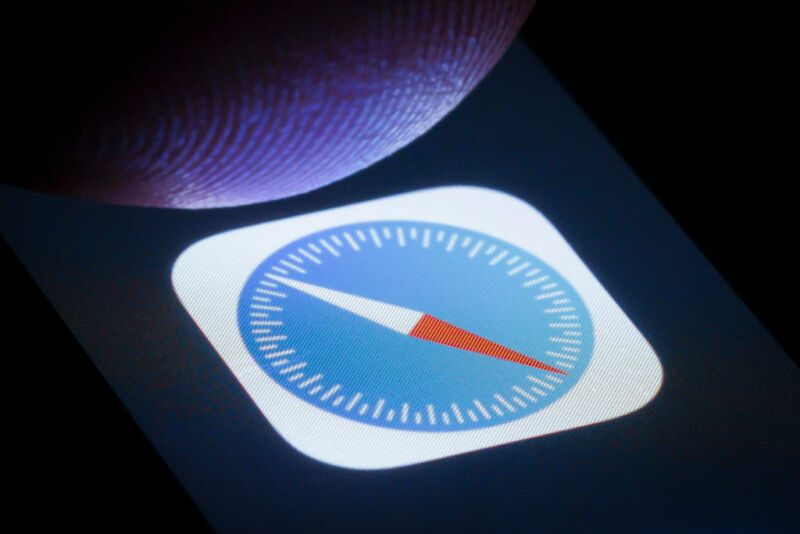
Smaller web browsers are gaining traction in the European Union after the Digital Markets Act (DMA) started requiring designated gatekeepers like Google and Apple to make it easier to switch default web browsers on devices.
Previously, tech giants were able to lock users into setting their own browsers as defaults—or at least make it complicated to update the defaults—offering the majority of users their own browsing services for free while collecting data used for ad-targeting. This, the EU feared, kept users from switching to defaults that offered superior or more private web browsing experiences.
Reuters collected data from six companies, confirming that, when presented with a choice screen, many EU users will swap out default browsers like Chrome or Safari for more privacy-focused options. And because iPhones have a larger market share than Google-branded phones in the EU, Apple is emerging as the biggest loser, Reuters reported, noting that under the DMA, “the growth for smaller browsers is currently coming at the cost of Safari.”
Some indie browsers are benefiting more than others from users shifting away from Safari. In the month since the DMA took effect on March 7, the Cyprus-based Aloha Browser told Reuters that its total users in the EU spiked by 250 percent in March. In Belgium, Aloha users increased three-fold, Aloha said in a press release.
Aloha attracts about 10 million monthly average users globally by promising “total privacy.” The company profits from paid subscriptions to premium features like “advanced VPN and privacy-oriented AI,” instead of from tracking users for invasive ad-targeting, the press release said.
Aloha does not and has “never collected, stored or monetized any user data of any kind, making Aloha the only major browser that does not receive any money for user data,” Aloha CEO Andrew Frost Moroz said in the press release, adding that “we were not surprised to see this increase.”
“By enacting these regulations, the EU has done two things: They’ve cut down on some of big tech’s monopolistic practices, and they’ve made consumers more aware of their choices in the tools they can use online,” Frost Moroz said. “And many of those consumers are clearly saying they want to take back control of their digital privacy and personal data.”
At least five other browsers have also benefited, Reuters reported, confirming that Norway’s Vivaldi and Opera, Germany’s Ecosia, and US-based Brave and DuckDuckGo all reported increased users after the DMA took effect. Jan Standal, Opera’s vice president, did not share specific numbers but said that Opera is experiencing “record user numbers in the EU right now.”
While these numbers are encouraging for smaller browsers hoping to gain a larger market share in the EU, some browser companies have criticized Apple and Google for “slowing the migration of mobile users to new browser choices” by rolling out “slow and clunky” updates, Reuters reported.
Vivaldi CEO Jon Stephenson von Tetzchner directly criticized Apple’s process to swap default browsers as “just so convoluted that it’s easiest for (users) to select Safari or potentially some other known name.” The CEO told Reuters that Apple only displayed the required choice screen—currently “curated for each of the 27 countries in the EU” and “showing up to 11 browsers in addition to Safari”—when users clicked on Safari and said Apple failed to provide useful information about alternative choices.






















+ There are no comments
Add yours